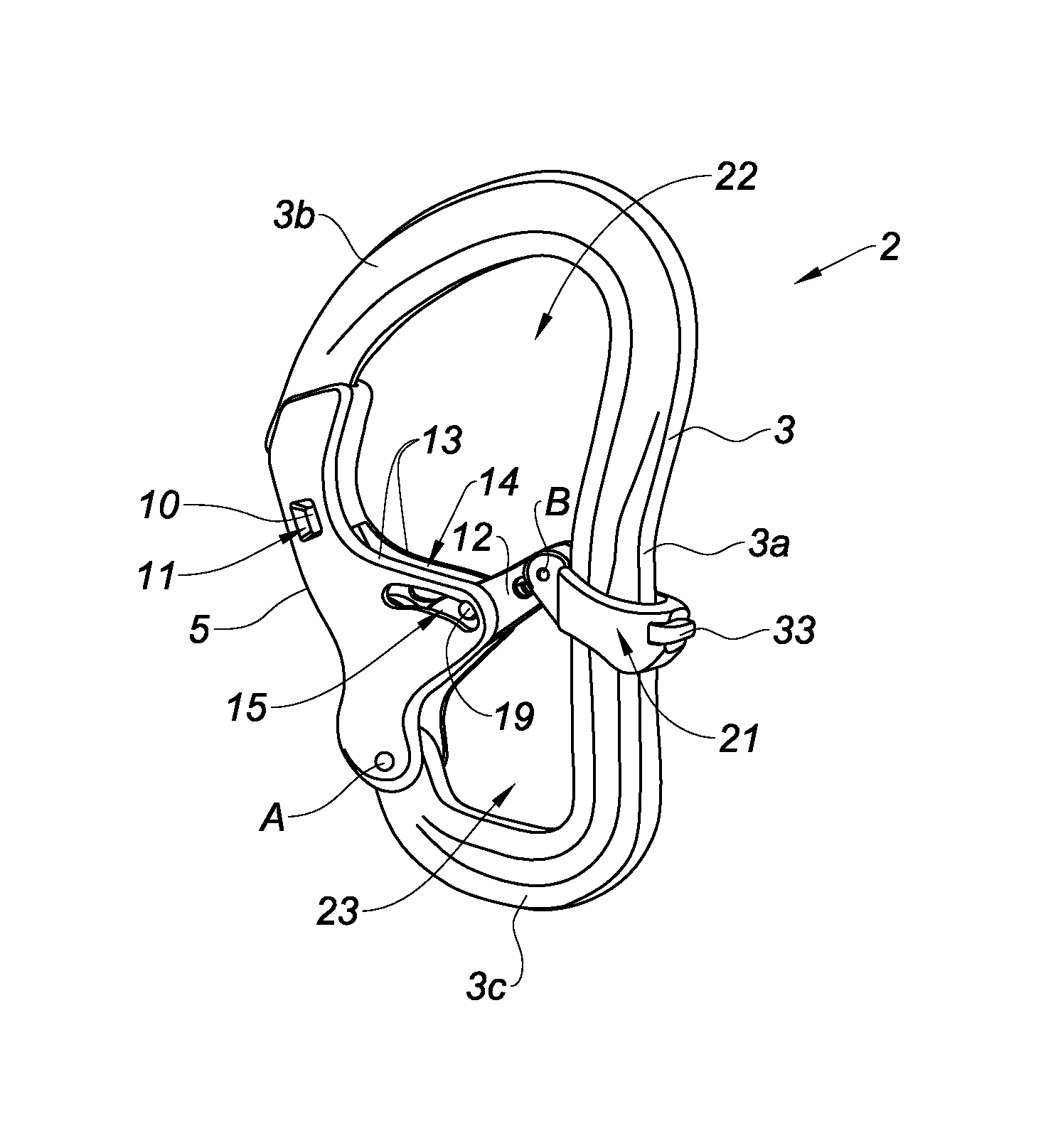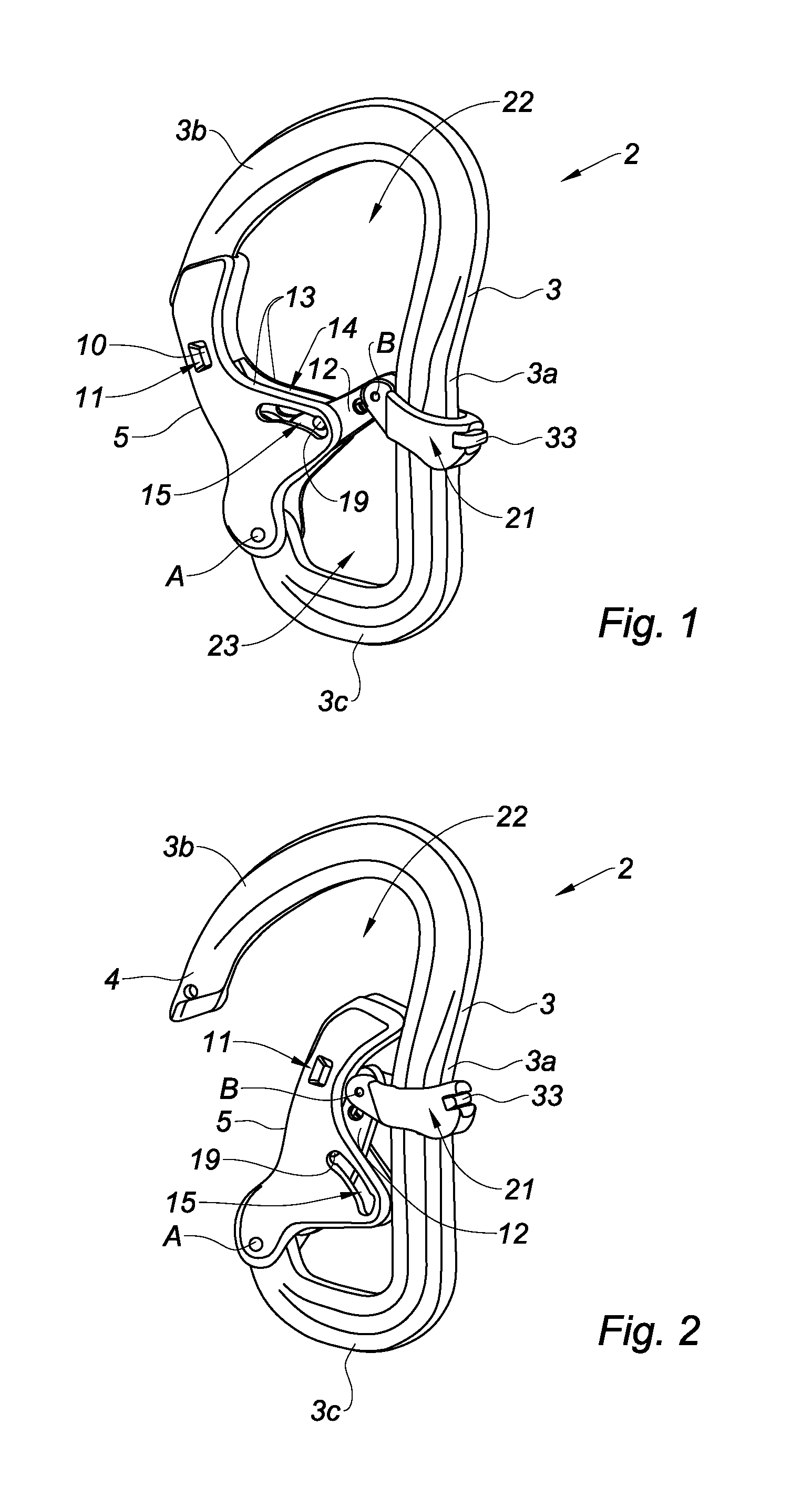Safety carabiner
a carabiner and safety technology, applied in the field of safety carabiners, can solve the problems of difficult opening of the carabiner, awkward handling of the carabiner, and often catching on the handling member
- Summary
- Abstract
- Description
- Claims
- Application Information
AI Technical Summary
Benefits of technology
Problems solved by technology
Method used
Image
Examples
Embodiment Construction
[0066]FIGS. 1 to 14 show a safety carabiner 2 that can be used, inter alia, for climbing, speleology, and water sports, such as sailing, or as a safety measure protecting people working at heights from falling.
[0067]The safety carabiner 2 comprises a generally C-shaped body 3. The body 3 comprises a substantially rectilinear central portion 3a extended at its ends by a first hook-shaped branch 3b and a second curved branch 3c. The first hook-shaped branch 3b comprises a retaining portion 4 at its free end.
[0068]The safety carabiner 2 also comprises a closing finger 5 pivotably mounted around a hinge pin A situated at the free end of the second curved branch 3c, between a closed position in which the closing finger 5 cooperates with the retaining portion 4 of the first hook-shaped branch 3b and an open position in which the closing finger 5 is tilted toward the inside of the carabiner.
[0069]The safety carabiner 2 also comprises locking means movably mounted on the closing finger 5 be...
PUM
 Login to View More
Login to View More Abstract
Description
Claims
Application Information
 Login to View More
Login to View More - R&D
- Intellectual Property
- Life Sciences
- Materials
- Tech Scout
- Unparalleled Data Quality
- Higher Quality Content
- 60% Fewer Hallucinations
Browse by: Latest US Patents, China's latest patents, Technical Efficacy Thesaurus, Application Domain, Technology Topic, Popular Technical Reports.
© 2025 PatSnap. All rights reserved.Legal|Privacy policy|Modern Slavery Act Transparency Statement|Sitemap|About US| Contact US: help@patsnap.com



